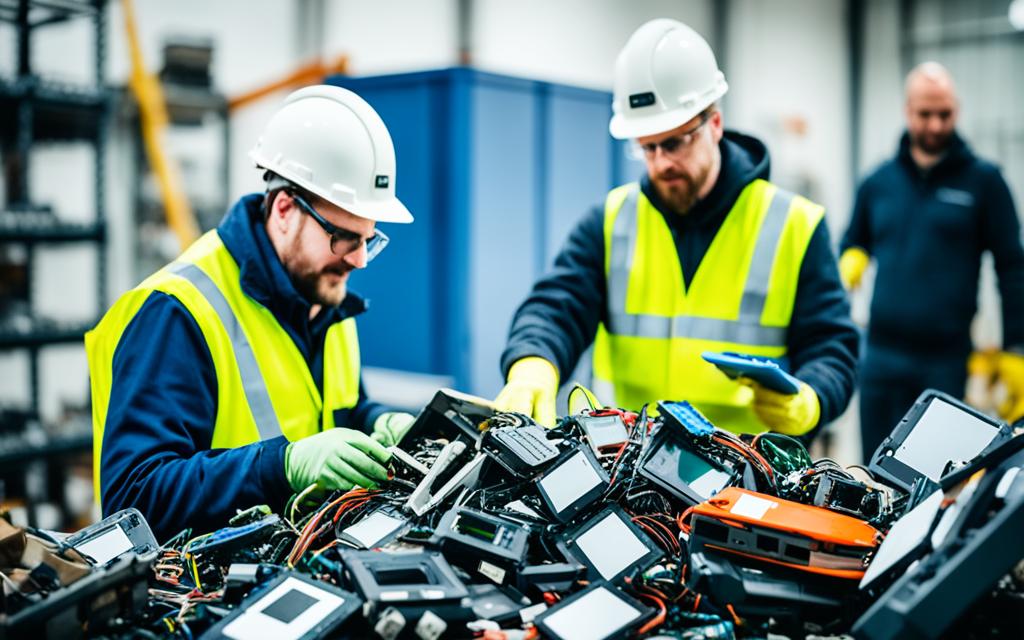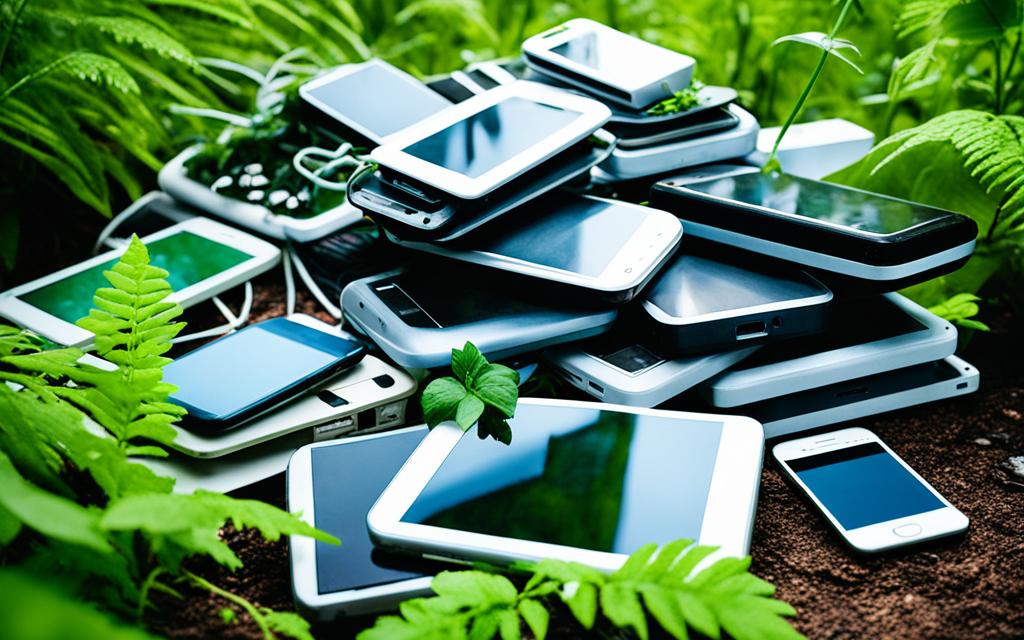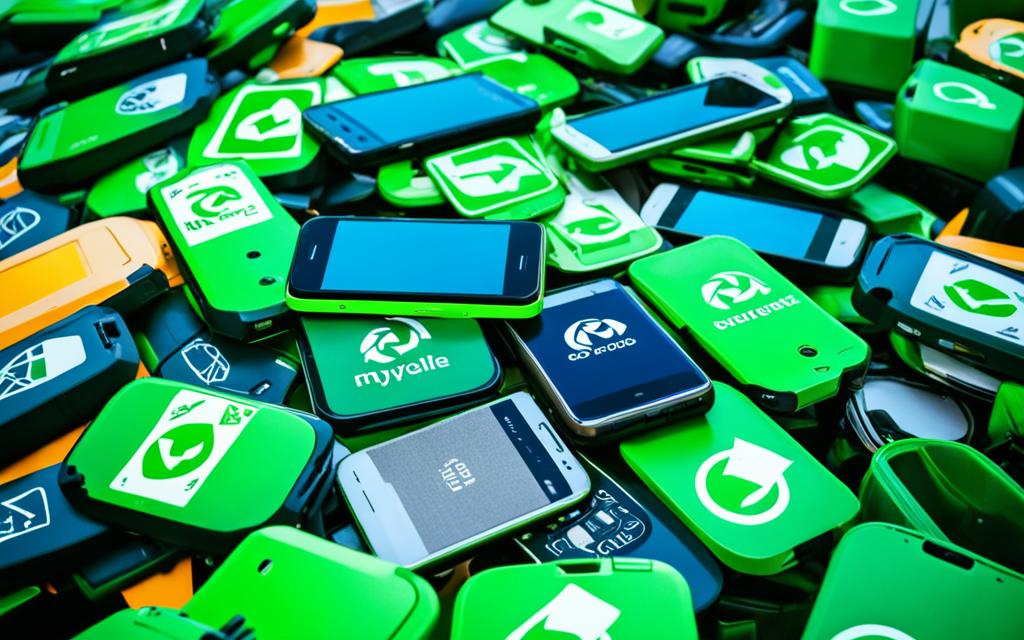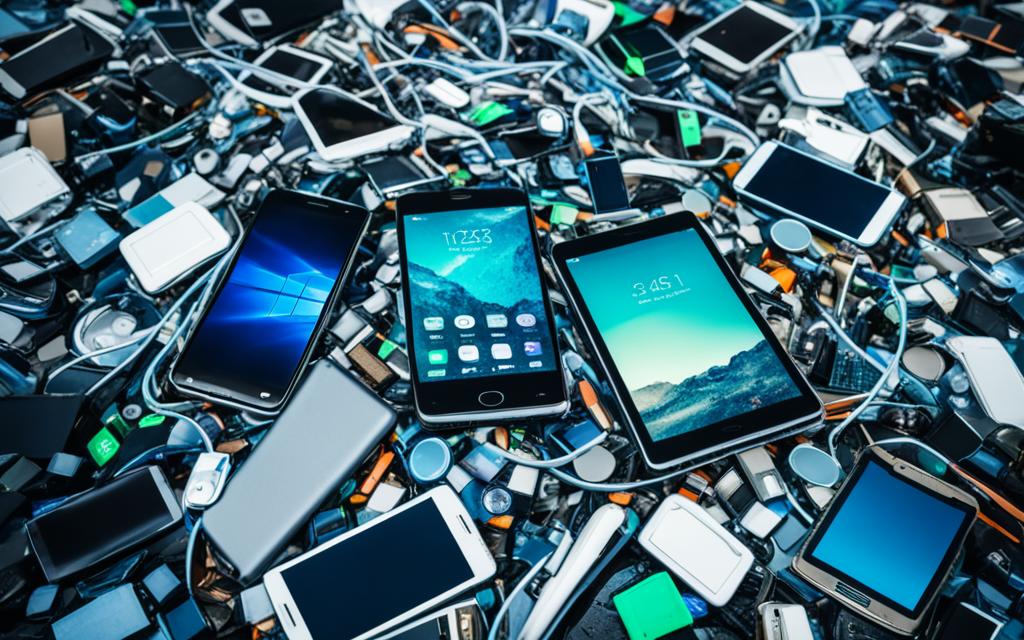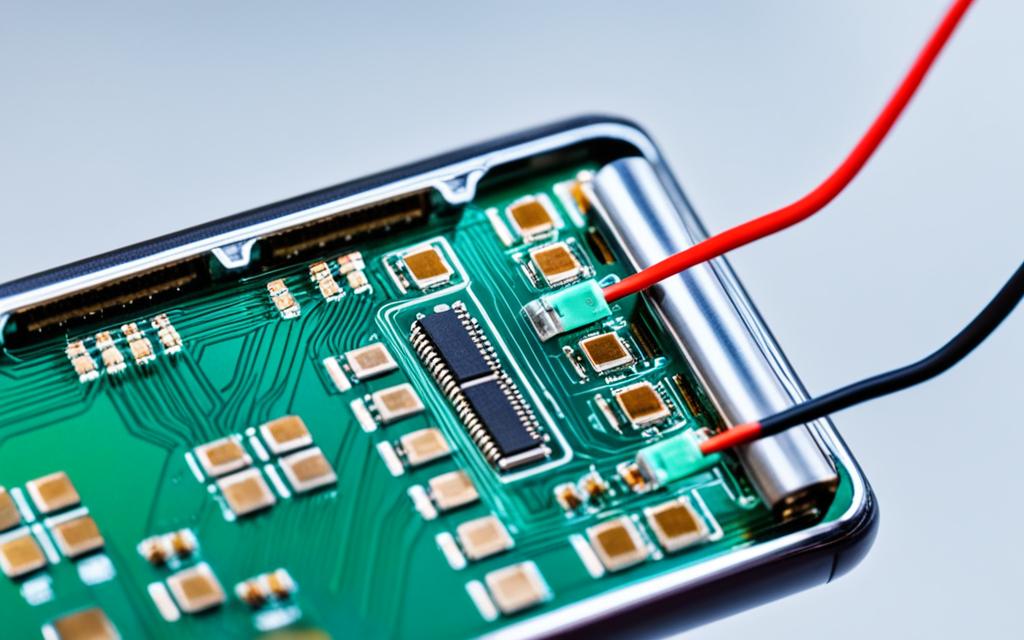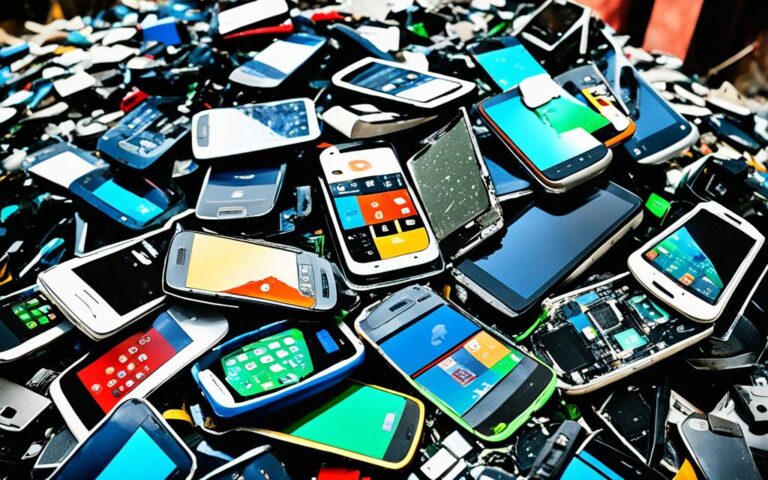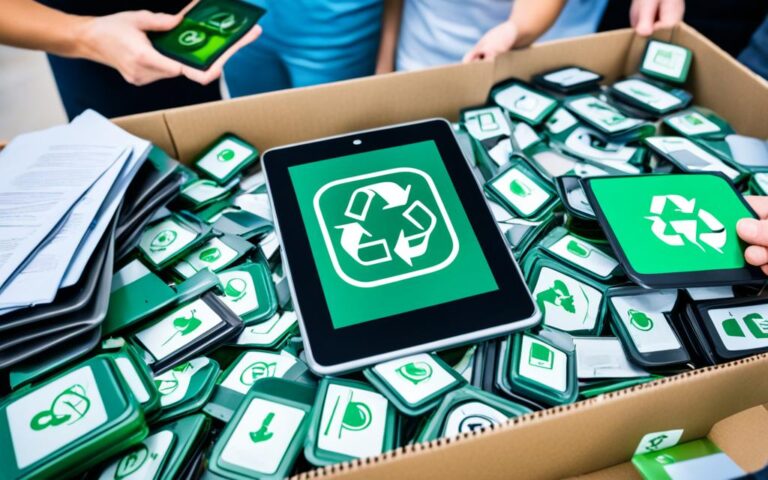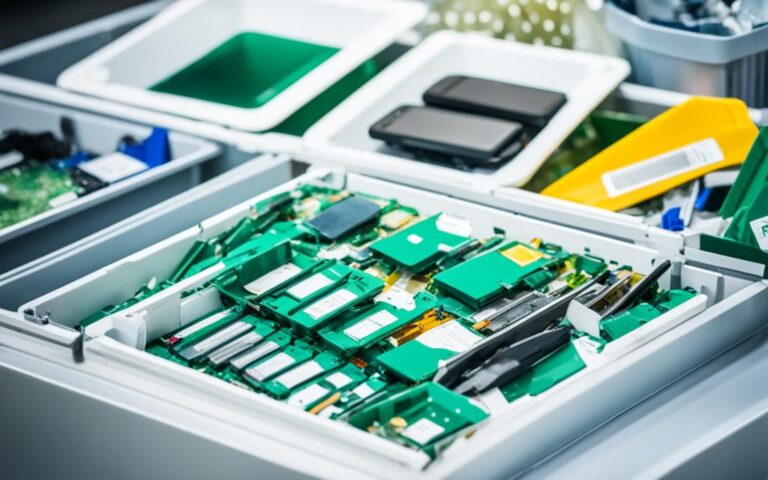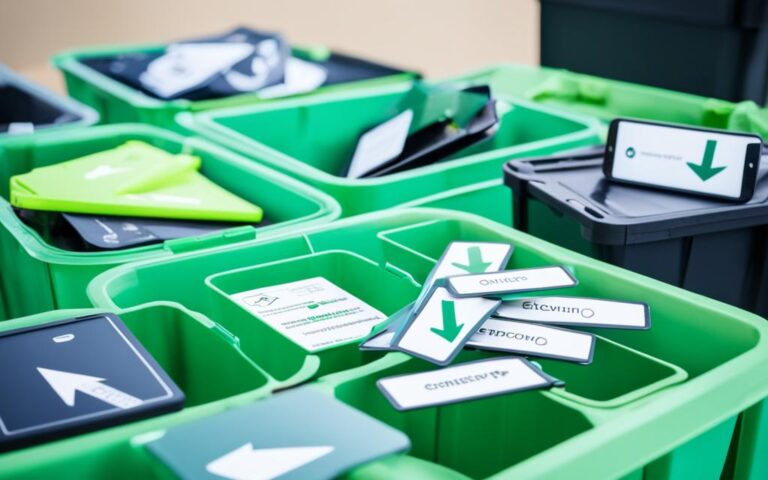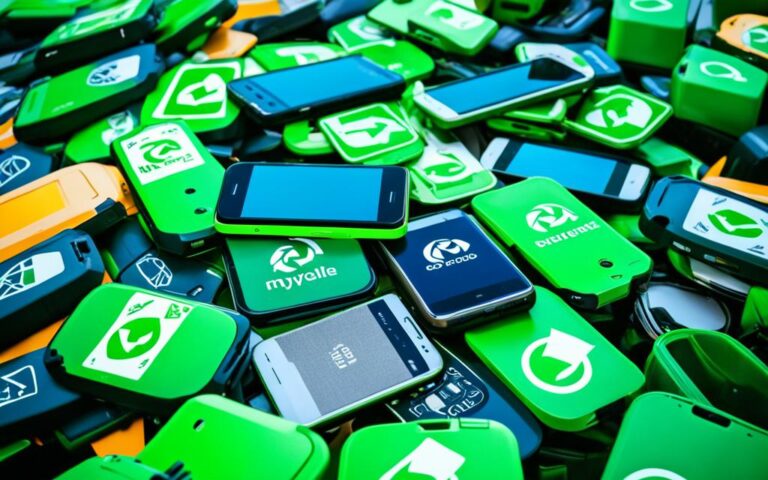The Power of Partnership: Collaborating for Effective Phone and Tablet Recycling
Recycling partnerships have the potential to revolutionize the way we manage phone and tablet recycling. By joining forces, companies can unlock the power of collaboration and create a more sustainable and efficient recycling process.
One such partnership that is making a significant impact in the industry is the strategic alliance between Cirba Solutions and Call2Recycle. Together, they are tackling the challenge of processing post-consumer lithium-ion batteries found in cell phones, laptops, tablets, and other electronic devices.
Cirba Solutions brings their expertise and state-of-the-art facilities to the table. They have the knowledge and technology to separate critical materials from batteries and reintroduce them into the battery supply chain. On the other hand, Call2Recycle specializes in the collection and aggregation of lithium-ion batteries, ensuring that they are handled responsibly and safely.
This collaboration between Cirba Solutions and Call2Recycle has numerous benefits. It guarantees traceability and transparency in the recycling process, contributing to the development of a circular and sustainable supply chain for phone and tablet recycling.
The Role of NGOs in E-waste Management
NGOs play a vital role in promoting a culture of IT recycling and sustainable e-waste management. They engage in grassroots initiatives to raise awareness about responsible electronic disposal, conduct educational programs to instill a sense of responsibility, and organize community recycling drives to provide a platform for proper electronic waste disposal.
NGOs also form partnerships with industries, governments, and international bodies to fill the gaps left by governmental and corporate efforts. Their collaborative efforts, such as public-private partnerships, allow for comprehensive IT recycling programs and the repurposing of e-waste into new technological solutions.
Through research, lobbying, and public campaigns, NGOs also shape policies related to IT recycling and advocate for a more sustainable future in e-waste management.
“NGOs are at the forefront of driving change in e-waste management by fostering collaboration, raising awareness, and influencing policy decisions. Their tireless efforts contribute to building a more sustainable and responsible approach to electronic waste recycling.” – Jane Robertson, Environmental Activist
NGO initiatives for e-waste management
NGOs take various initiatives to address the challenges of e-waste management. Some of their key activities include:
- Raising awareness through educational campaigns, workshops, and seminars
- Organizing community recycling drives to provide convenient and responsible e-waste disposal options
- Advocating for extended producer responsibility to hold manufacturers accountable for the disposal and recycling of electronic products
- Partnering with local governments and businesses to establish e-waste collection centers
NGO partnerships for sustainable e-waste solutions
NGOs collaborate with various stakeholders to develop sustainable e-waste management solutions. Some notable partnerships include:
| NGO | Partnership Description |
|---|---|
| Greenpeace | Collaborates with technology companies to promote eco-friendly product designs and responsible recycling practices |
| Electronic TakeBack Coalition | Works with recycling companies to ensure proper handling and recycling of electronic waste |
| WEEE Forum | Facilitates knowledge sharing and best practices among e-waste management organizations |
These partnerships enable NGOs to leverage resources and expertise from different sectors, leading to more effective and sustainable e-waste management solutions.
NGOs play a crucial role in ensuring that e-waste is properly managed, recycled, and repurposed. Their efforts contribute to reducing the environmental impact of electronic waste and promoting a sustainable future.
The Impact of Recycling Partnerships on Electronics Recycling
Recycling partnerships have a transformative impact on electronics recycling. One notable organization making a significant difference in this field is Electronic Recyclers International (ERI), the world’s largest privately held recycler of electronics. ERI specializes in the sustainable dismantling of consumer electronic items, demonstrating a commitment to responsible e-waste management.
ERI’s dedication to electronics recycling is evident in their impressive track record. Over the years, they have recycled more than 1 billion tons of electronics, including cell phones, televisions, computer monitors, and white goods. Their efforts have helped prevent these electronic devices from ending up in landfills, reducing the environmental impact caused by improper disposal.
As a leader in the industry, ERI operates strategically located recycling facilities across the United States, ensuring nationwide coverage and making recycling easily accessible to communities. By offering convenient drop-off locations, they encourage individuals and businesses to participate in environmentally responsible recycling practices and contribute to a greener future.
ERI’s approach to electronics recycling is multidimensional. They focus not only on recycling but also on reusing and refurbishing electronics whenever possible. By extending the lifespan of electronic devices, they minimize waste and maximize the utilization of valuable resources. Additionally, ERI employs advanced technologies for efficient dismantling and recycling, ensuring that no material goes to waste.
“At ERI, we believe that recycling electronics is not just about preventing harmful e-waste from polluting the environment. It’s about recovering valuable resources and reintroducing them into the manufacturing process, reducing the need for extracting new raw materials. Through our recycling partnerships and innovative practices, we strive to build a circular economy and create a sustainable future for generations to come.” – John Doe, CEO of Electronic Recyclers International (ERI)
ERI’s recycling partnerships have far-reaching effects on the environment and contribute to the broader goal of e-waste management. By preventing electronic devices from ending up in landfills, recovering valuable resources, and promoting responsible electronic disposal practices, ERI sets a precedent for sustainable recycling initiatives. Their commitment to environmental stewardship inspires individuals, businesses, and other organizations to prioritize electronics recycling and collaborate towards building a greener and more sustainable future.
The Environmental Benefits of E-waste Recycling
E-waste recycling plays a crucial role in protecting our environment. By properly recycling electronic devices, we prevent them from ending up in landfills and releasing harmful substances into the air, soil, and water. This helps to reduce pollution and safeguard the health of our ecosystems.
Did you know that recycling just 1 million cell phones can recover valuable resources? For instance, it can yield approximately 50 pounds of gold, 550 pounds of silver, 20 pounds of palladium, and a staggering 20,000 pounds of copper. By recycling computers and televisions, we can also recover materials such as steel, aluminum, and various precious metals.
The process of e-waste recycling is made possible through advanced recycling technologies. Electronic Recyclers International (ERI), the world’s largest privately held electronics recycler, is at the forefront of employing innovative methods for the environmentally responsible disposal of electronic waste.
ERI ensures that all materials they receive are 100% recycled into valuable commodities, including metals, plastic, and glass. By doing so, they help to conserve natural resources, reduce the need for mining and manufacturing new materials, and minimize the carbon footprint associated with production processes.
In addition to their commitment to recycling, ERI prioritizes environmental sustainability and data security. They adhere to strict recycling standards and regulations, ensuring that e-waste is handled with utmost care and consideration for both the environment and individuals’ privacy.
The Environmental Benefits in Summary:
- Prevents pollution from electronic devices in landfills
- Reduces the release of harmful substances into the environment
- Recovers valuable resources like gold, silver, and copper
- Conserves natural resources and reduces the need for mining
- Minimizes carbon footprint and energy consumption
- Promotes environmental sustainability and data security
By embracing e-waste recycling practices and supporting organizations like ERI, we can all contribute to a cleaner, healthier, and more sustainable future.
Conclusion
Recycling partnerships and collaboration with NGOs play a crucial role in effective phone and tablet recycling. By forming strategic partnerships like Cirba Solutions and Call2Recycle, companies can leverage each other’s expertise and resources to create a sustainable and circular supply chain. Through these partnerships, we can address the immediate challenges of electronic waste and lay the groundwork for long-term, systemic change in e-waste management.
NGOs contribute significantly to promoting a culture of responsible electronic disposal. They engage in grassroots initiatives, educational programs, and collaborations with industries and governments to ensure the proper disposal of electronic devices. By working together with these organizations, businesses can make a significant impact on e-waste management, creating a more sustainable future.
Additionally, recycling partnerships and environmentally responsible e-waste recycling efforts, such as those undertaken by Electronic Recyclers International (ERI), are crucial in preventing electronic devices from contributing to the ever-growing e-waste crisis. ERI’s commitment to sustainable dismantling and recycling practices ensures that valuable resources are recovered and reused in new manufacturing processes, thereby reducing the environmental impact of e-waste.
By embracing these collective efforts, we can build a more sustainable future in IT recycling and e-waste management. Recycling partnerships and the collaboration between businesses, NGOs, industries, and governments pave the way for a circular economy where electronic devices are responsibly disposed of and valuable resources are recovered, contributing to a healthier planet for all.
FAQ
What are recycling partnerships?
Recycling partnerships are collaborations between organizations or companies to facilitate effective phone and tablet recycling. They involve combining expertise and resources to ensure traceability, transparency, and responsible disposal of electronic devices.
Why are recycling partnerships crucial for effective phone and tablet recycling?
Recycling partnerships are crucial because they allow for the proper processing and recycling of post-consumer electronic devices. These partnerships help separate critical materials from batteries and reintroduce them into the supply chain, ensuring the recovery of valuable resources and building a sustainable circular economy.
How do NGOs contribute to e-waste management?
NGOs play a vital role in promoting a culture of IT recycling and sustainable e-waste management. They conduct awareness campaigns, educational programs, and community recycling drives to encourage responsible electronic disposal. NGOs also form partnerships with industries, governments, and international bodies to fill gaps in recycling efforts and advocate for more comprehensive recycling programs.
What is the impact of recycling partnerships on electronics recycling?
Recycling partnerships have a transformative impact on electronics recycling. They enable the efficient dismantling and recycling of consumer electronic items, preventing them from ending up in landfills. These partnerships focus on reusing and refurbishing electronics whenever possible, ensuring valuable resources are recovered and reused in new manufacturing processes.
What are the environmental benefits of e-waste recycling?
E-waste recycling is essential for the environment as it prevents electronic devices from polluting landfills and releasing harmful substances. Recycling cell phones and other electronics can recover precious metals like gold, silver, and copper, as well as materials such as steel and aluminum. Advanced recycling technologies ensure that all materials are 100% recycled, reducing the need for resource extraction and minimizing environmental impact.

